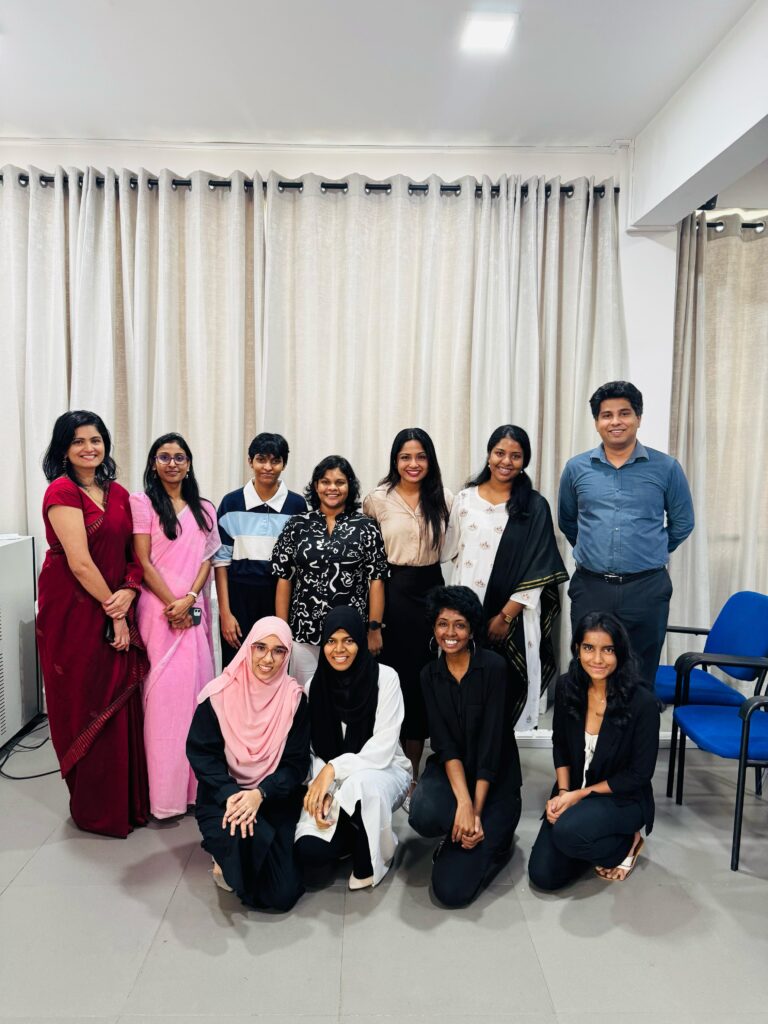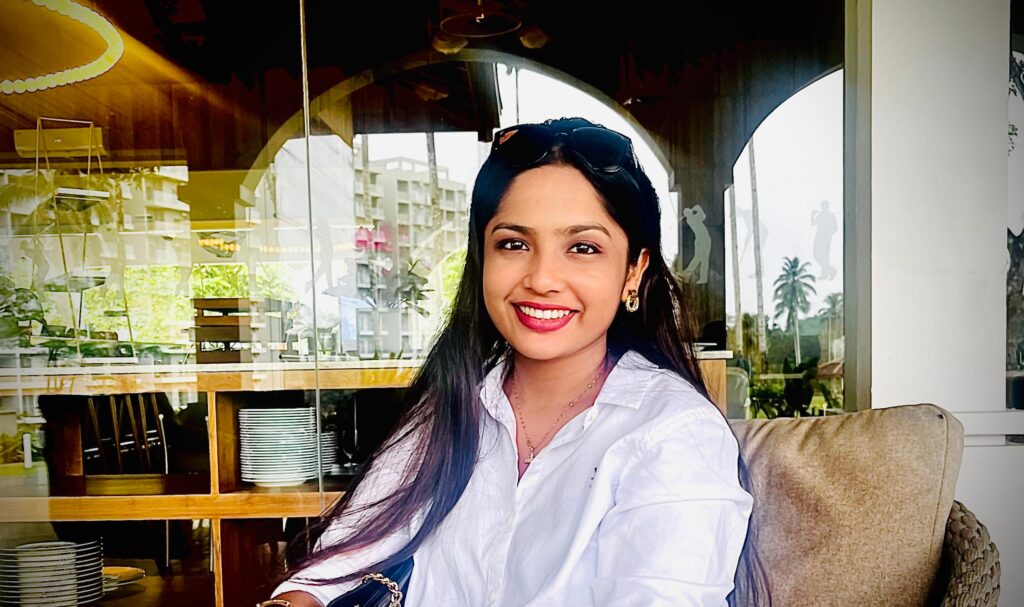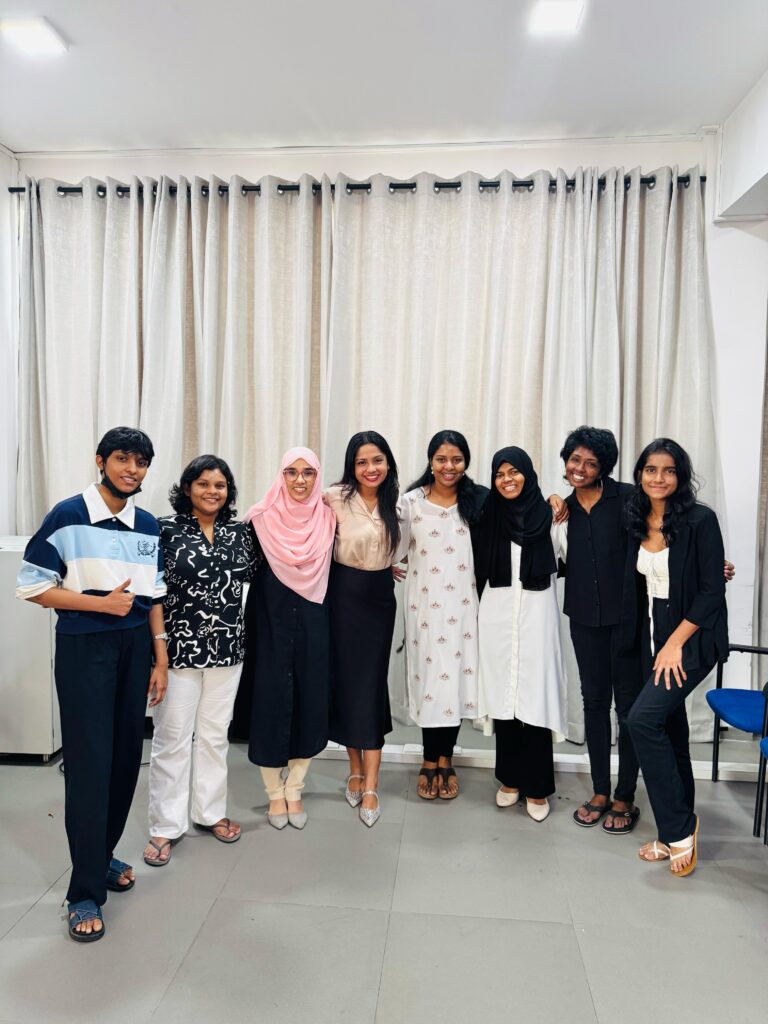
Period Period Period Period Period Period Period Period Period Period Period Period Period Period
Rianna De Mel is a passionate and empathetic 23-year-old dedicated to supporting individuals through some of life’s most difficult challenges. She currently works at the well-known Miduma Rehabilitation Center, which operates under the Archdiocese of Colombo, where she focuses on stabilizing and improving the mental well-being of individuals recovering from substance use disorder. Her work also includes providing support for rape survivors, teenage mothers, and children who are either orphans or come from troubled backgrounds.
Her academic journey reflects a long-standing commitment to mental health and human connection. She received her primary and secondary education at Bishop’s College, Colombo, a school that emphasized academic excellence while nurturing values like leadership, compassion, and female empowerment. During her school years, she served as a senior prefect and held leadership positions in multiple clubs and societies, contributing actively to efforts that uplifted others.
At the age of 18, while pursuing a foundation program in Health Science through Edith Cowan University, she began gaining practical experience. This early exposure confirmed her desire to serve others through psychology. She later completed a Diploma in Psychology and Counseling and is now in the final year of her BSc (Hons) in Counseling and Psychology at the National Institute of Business Management (NIBM), in affiliation with Coventry University.
In addition to her formal studies, Rianna has pursued specialized training, including an online course from Harvard University titled Building Personal Resilience: Managing Anxiety and Mental Health, as well as a Diploma in Caregiving. She has worked at various schools and interned at multiple mental health institutions and organizations, further expanding her knowledge and compassion. These academic and hands-on experiences have equipped her to offer meaningful and empathetic psychological support.
Rianna sees period poverty in Sri Lanka as an issue that begins with cultural contradictions. Although a girl’s first period is often publicly celebrated, menstruation quickly becomes a topic surrounded by shame and silence. Many young girls grow up feeling the need to hide something that is natural and essential. Even buying sanitary napkins is a source of anxiety for many, as social stigma forces them to act in secrecy.
She questions why menstruation a process so central to life is treated with embarrassment. The problem goes beyond social stigma; due to lack of education and deep-rooted economic inequality, many women and girls across Sri Lanka, especially in rural areas and even in parts of the Western Province, are unable to afford or access basic menstrual hygiene products.
This lack of access, combined with cultural shame, leads to decreased self-esteem, social withdrawal, and in many cases, compromised mental health. According to research, nearly 60% of girls in Sri Lanka report feelings of anxiety and shame about menstruation which adds to their emotional and psychological burdens.
Yet, Rianna remains hopeful. She believes Sri Lanka is slowly changing. Mental health, once considered a private or shameful topic, is gaining attention. Thanks to the work of organizations like FEMS Sri Lanka, more people are starting to talk openly about women’s health, including menstruation. These conversations are helping to break long-standing taboos and create space for change.
As the President of the Psychology Society at NIBM, Rianna took action by proposing a campaign to address menstrual health and education. The project, titled “Breaking the Cycle“, was warmly supported by NIBM lecturers, management, and student leaders. The campaign aimed to educate young women on menstrual hygiene while breaking the stigma and silence around menstruation.
Together with her team, Rianna led this project with great care and dedication. Weekly planning meetings turned into vibrant discussions, and faculty members offered their full support. The name Breaking the Cycle was chosen to reflect both the physical menstrual cycle and the cycle of silence and misinformation they hoped to end.
The campaign began in the Western Province on May 28, 2025, with an event held at Ratnawali Girls’ School. Nearly 200 students from Ratnawali, Clifton Girls’ School, and All Saints’ Girls’ School attended. FEMS Sri Lanka generously donated 200 packs of sanitary napkins, ensuring every student went home with essential supplies.
The event included talks and workshops led by professionals. Mrs. Dilashini Buwanayake, a trained nursing officer, explained menstrual hygiene and physical health. Psychologists Dr. Samurddhi Senanayake and Mrs. Venuka Abeyratne guided students through emotional and mental health topics linked to menstruation. The students engaged actively, asked important questions, and shared their own experiences.
A key moment of the event was when a student said, “It feels good to discuss these things without shame.” That statement reflected exactly what the campaign hoped to achieve. Thanks to Munchee Sri Lanka, who sponsored snacks, the event ended on a warm and friendly note.
Rianna and her team considered this a major success not just for distributing sanitary pads, but for helping young girls replace shame with knowledge and pride.
The next step in the campaign is to reach girls in rural communities, where education and product access are even more limited. Phase II of Breaking the Cycle aims to reach 2,500 students in the coming months. Rianna’s team is already in touch with school boards, community leaders, and possible partners to organize these sessions.
Since 2021, Fems as a brand has been consistently engaged in initiating awareness campaigns on menstruation among schools in rural areas. Rianna is hoping to collaborate with FEMS Sri Lanka and to include more guest speakers and counsellors in order to continue combining physical education with emotional support. The goal is to make sure every girl no matter where she lives feels respected, informed, and supported.
Rianna expresses deep gratitude to those who made this project possible. The lecturers at NIBM Mr. Viran Perera, Ms. Shadmi Wijayawardhana, and Mrs. Oshani Pitadeniya played a key role by guiding and supporting the team. Special thanks go to Dr. Samira Wijayasiri, who served as a mentor and guide during the planning process.
She also recognizes the contribution of the guest speakers and professionals who delivered impactful sessions. FEMS Sri Lanka, the campaign’s main sponsor, believed in the vision from the beginning and supported the students with both products and educational tools. Also they believe that creating awareness of the dangers of using cloth as pads and to be able to overcome such antiquated practices is vital.



Rianna believes that period poverty is not just about products it’s also about education, mental health, gender inequality, and emotional support. It affects girls’ self-worth, school attendance, and long-term confidence.
To fight it, individuals can start by showing empathy. Being there for someone, listening to them without judgment, and helping them feel normal about menstruation are powerful acts. Rianna encourages people to speak openly, challenge jokes or shame, and educate themselves and others.
Schools should teach both girls and boys about menstruation. They should also provide free sanitary products, supportive restrooms, and well-trained teachers. Campaigns like Breaking the Cycle show how schools can be places of real change.

SatynMag empowers women with inspiring stories, expert advice, and uplifting content to fuel their strength and dreams
Welcome to Satynmag S Suite, online knowledge platform for career and personal growth. This is where you can empower yourself with cutting edge knowledge, latest know-how and grow.


